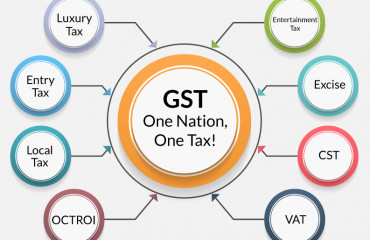
On May 11 the Karnataka High Court delivered a ruling on how to tax online games such as Rummy, which should inform the decisions of the Goods and Services Tax Council when it meets in June. The court’s ruling should persuade the council to dump the recommendation of a subcommittee of state finance ministers to levy the tax on the contest entry amount and instead tax only the gross gaming revenue.
On May 11 the Karnataka High Court delivered a ruling on how to tax online games such as Rummy, which should inform the decisions of the Goods and Services Tax Council when it meets in June. The court's ruling should persuade the council to dump the recommendation of a subcommittee of state finance ministers to levy the tax on the contest entry amount and instead tax only the gross gaming revenue.
Online games that involve elements of betting but defy classification as games of chance because skill plays a big role in their outcome are but one segment of the growing business segment called gaming. For those over 40, gaming probably conjures up images of young people wasting their time in a Western indulgence that they would do well to steer clear of. This is dead wrong.
Microsoft's bid to buy game maker Activision Blizzard for $69 billion is an eye-opener, which indicates the growing importance of gaming. The gaming industry is already four times the size of the global market for movies and is poised to grow even bigger, thanks to multilayered story-telling, virtual reality and sophisticated graphics. It's expected to create hundreds of thousands of jobs in script writing, graphic design, music, and advanced computing. With its diverse pool of talent, India could play a big role in the gaming industry – provided we don't kill it with senseless taxation.
GST on lottery and similar activities treats the winnings as actionable claims and subjects them to a 28% tax in their entirety. The crucial question is whether online games such as Rummy and fantasy sports are akin to gambling and thus liable to be taxed on the totality of their proceeds. The GST authorities thought so, and imposed a tax demand of some ₹21,000 crore on Gameskraft Technologies, which organises online Rummy games and tournaments. The company disputed this classification and the battle eventually ended up in the Karnataka High Court.
The court ruled that the tax authorities got it wrong when they equated playing for a stake in a game with an uncertain outcome in gambling. The tax authorities took the view that if money is staked in an activity whose outcome is uncertain, and the potential winning exceeds the stake, it amounts to gambling. Clearly, this is too broad a definition and could describe any entrepreneurial activity.
The Karnataka High Court said when the activity in question is a game of skill and the stake is being placed by a player who relies on his skill rather than luck, it cannot be called gambling. In gambling, the person placing the bet has no influence on the outcome. Once the skill-dominant game of chance is determined not be gambling, the rule of taxing the entire proceeds as actionable claims no longer applies. The question then is what to tax and at what rate.
When a rummy player enters the online game, she pays a contest entry amount (CEA), which has two parts: the table fee charged by the gaming company, typically 10% of the CEA, and the stake. The gaming company earns only the table or platform fee. This is akin to the brokerage that accrues to a broker who organises online trading of securities. GST is levied on the fee charged for the service of brokering, not on the trading amount, which includes the price of the security traded and the brokerage. This is the logic behind the gaming industry's demand that GST be levied on the gross gaming revenue and not on the CEA. This makes perfect sense.
As for the rate of tax, it could well be the highest rate of GST, which is reserved for colas, large automobiles and luxuries in general. Gaming is not a bare necessity, although many seniors who ward off boredom and dementia with online card games may beg to differ.
The tax rate is less important than the principle involved, which would determine the tax base. The base on which GST should be levied is the fee that accrues to the gaming platform, which excludes the value of the stake.
Getting taxation of one segment of gaming wrong could dampen its growth of that of other parts of the gaming universe. That would be counterproductive in the extreme.
